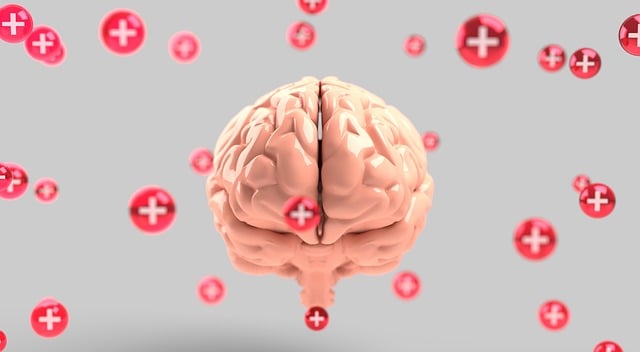Broomfield First Responders Therapy offers a holistic approach to managing mood swings and mental health challenges, focusing on self-care, social skills, and stress management. By identifying emotional triggers and exploring root causes, individuals gain tools for effective emotional regulation using evidence-based methods like CBT and mindfulness. This therapy promotes resilience, cultural competency, and healthier relationships, helping clients achieve better mood stability and long-term mental health improvement.
Mood regulation is a vital skill, especially in today’s fast-paced world. This comprehensive guide explores effective strategies to manage and enhance emotional well-being, focusing on the powerful approach of Broomfield First Responders Therapy (BFRT). We delve into understanding the fundamentals of mood regulation, identifying triggers, adopting practical daily habits, and recognizing the value of professional support. By combining these insights, individuals can navigate emotional challenges and cultivate a more balanced and resilient mindset.
- Understanding Mood Regulation: The Role of Broomfield First Responders Therapy
- Identifying Triggers and Emotional Patterns
- Practical Strategies for Daily Mood Management
- Professional Support and Personalized Therapy Techniques
Understanding Mood Regulation: The Role of Broomfield First Responders Therapy

Understanding Mood Regulation: The Role of Broomfield First Responders Therapy
Mood regulation is a complex process that involves managing and stabilizing emotional states. For individuals dealing with frequent mood swings or mental health challenges, effective strategies can significantly enhance their overall well-being. Here’s where Broomfield First Responders Therapy steps in as a powerful tool. This therapeutic approach focuses on helping clients develop healthy coping mechanisms and improve their ability to navigate intense emotions.
Broomfield First Responders Therapy encourages individuals to cultivate better social skills and self-care routines, which are essential for emotional resilience. By learning effective communication techniques and practicing self-care practices, one can proactively manage stress and prevent negative mood patterns from taking hold. Integrating Social Skills Training into therapy enables participants to build supportive connections, fostering a sense of belonging and reducing feelings of isolation. This holistic approach not only empowers individuals but also paves the way for long-term mental health improvement and a greater capacity for emotional regulation.
Identifying Triggers and Emotional Patterns

Identifying triggers is a crucial first step in managing one’s mood and emotional well-being. By paying close attention to what sets off certain emotional responses, individuals can begin to understand their unique patterns. This process involves recognizing environmental cues, specific situations, or even thoughts that consistently lead to heightened emotions. For instance, someone might discover that certain places, like crowded public spaces, trigger anxiety, while others may find particular conversations or memories incite feelings of sadness or anger.
Broomfield First Responders Therapy offers valuable tools for navigating these emotional triggers and patterns. Through therapy sessions, individuals can learn to identify their personal prompts and develop strategies to manage their reactions. This involves exploring the root causes behind these triggers, often uncovering underlying beliefs or past experiences that contribute to recurring emotional challenges. By applying Mind Over Matter principles, one can gain a sense of control over their mood management and employ effective Emotional Well-being Promotion Techniques to foster resilience.
Practical Strategies for Daily Mood Management

Managing one’s mood on a daily basis is an essential aspect of well-being, and several practical strategies can help individuals navigate their emotional states effectively. One innovative approach gaining traction in the mental health realm is Broomfield First Responders Therapy, which focuses on proactive mood regulation. This therapy encourages individuals to become their own emotional first responders by equipping them with tools to recognize and manage triggers and emotions in real-time, fostering a sense of control.
By integrating evidence-based techniques into daily routines, people can enhance their mental resilience. Simple practices such as mindful breathing exercises, regular physical activity, and maintaining a structured sleep schedule have been proven to significantly impact mood stability. Additionally, setting realistic goals and engaging in activities that bring joy and relaxation contributes to a positive mindset. Public Awareness Campaigns Development and Mental Health Policy Analysis and Advocacy play a crucial role in promoting these strategies, ensuring accessible resources for those seeking effective mood management techniques.
Professional Support and Personalized Therapy Techniques

For individuals seeking comprehensive mood regulation strategies, professional support and personalized therapy techniques are invaluable tools. Broomfield First Responders Therapy offers specialized services tailored to meet the unique needs of those dealing with emotional challenges. This approach recognizes that every individual has distinct experiences and responses to stress, conflict, or trauma. Therapists employ a range of evidence-based methods, such as Cognitive Behavioral Therapy (CBT) and mindfulness practices, to help clients develop effective coping strategies.
By integrating personalized therapy techniques, healthcare providers can enhance their cultural competency, enabling them to better understand and address the diverse emotional needs of their patients. This holistic approach not only focuses on stress management but also equips individuals with conflict resolution techniques that foster healthier relationships and improved overall well-being.
In conclusion, managing one’s mood effectively is a multifaceted process that can significantly enhance overall well-being. By understanding the role of Broomfield First Responders Therapy in facilitating emotional regulation, identifying and confronting triggers, employing practical daily strategies, and seeking professional support when needed, individuals can navigate their emotional landscapes with greater ease. These integrated approaches empower individuals to lead more balanced and fulfilling lives.














